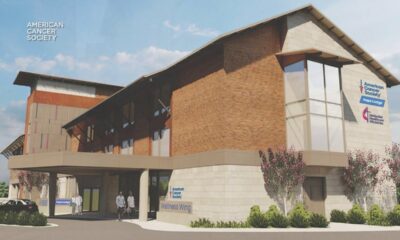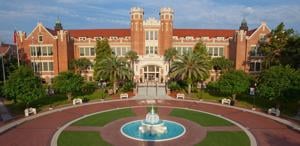floridaphoenix.com – Anna Claire Vollers – 2025-02-02 06:00:00
New Florida law allowing C-sections outside hospitals could be national model
by Anna Claire Vollers, Florida Phoenix
February 2, 2025
A recently enacted Florida law that allows doctors to deliver babies via cesarean section in clinics outside of hospitals could be a blueprint for other states, even as critics point to the role that a private equity-backed physicians group played in its passage.
The United States has poor maternal health outcomes compared with peer nations, and hospital labor and delivery units are shuttering around the country because of financial strain. Supporters say the Florida law could increase access to maternity care and lower costs for expecting patients.
But critics, including some physician, hospital and midwife groups, warn it’s an untested model that could put the health of mothers and babies at risk. They also note that private equity firms that have made other forays into health care have attracted state scrutiny for allegedly valuing profits over patient safety.
Alex Borsa, a researcher at Columbia University whose published work focuses on private equity’s impact on health care, said he’s not surprised that Florida has become the testing ground for such clinics.
“In addition to Florida being the Wild West in a number of policy directions, it has one of the highest concentrations of private equity-backed health care operators, including OB-GYN and fertility,” Borsa said.
Traditional birth centers are typically staffed by midwives who provide maternity care for low-risk pregnancies and births. Twenty-nine such centers operate in Florida, and about 400 are licensed around the country. The focus in these centers is on natural childbirth in a homelike setting, where women labor without anesthesia and deliver babies vaginally.
Florida’s law creates a new designation, called an “advanced birth center,” that allows physicians to offer labor and delivery services at a freestanding clinic, including delivery by cesarean section. There currently are no such centers. A C-section is a surgical procedure performed with anesthesia in which a baby is delivered through an incision in the patient’s abdomen and uterus. C-sections are generally reserved for situations in which a doctor believes a vaginal birth could be risky for the mother or baby.
Prior to the law’s passage last spring, C-sections could only be performed in hospitals, which have the staffing and equipment designed for surgery and potential complications.
“Both mom and baby deserve access to the best possible care, which is why we believe that C-sections should be performed exclusively in the hospital setting where doctors, multidisciplinary teams, sophisticated equipment, and other critical resources are immediately available in the event complications arise.”
– Florida Hospital Association President and CEO Mary Mayhew
But a private equity-owned physician group called Women’s Care Enterprises in recent years lobbied Florida legislators for the new designation. The group, owned by London-based investment firm BC Partners, operates about 100 clinics across Florida and a dozen more in Arizona, California and Kentucky.
The new designation was tucked inside a larger health policy bill and became law despite opposition from medical and midwifery groups.
“Both mom and baby deserve access to the best possible care, which is why we believe that C-sections should be performed exclusively in the hospital setting where doctors, multidisciplinary teams, sophisticated equipment, and other critical resources are immediately available in the event complications arise,” Florida Hospital Association President and CEO Mary Mayhew told Stateline in a statement.
The association lobbied against the birth center provision but supported other provisions in the bill, which included increased Medicaid payments to hospitals for maternity care. Other groups also opposed the bill.
“We’re primarily opposed to it because you’re calling a lion a tiger,” said Kate Bauer, executive director of the American Association of Birth Centers, a nonprofit that sets national standards for birth centers.
She noted that while advanced birth centers would offer maternity care outside a hospital setting, they are not the same as traditional midwifery-based birth centers. Midwife-attended births are for people with low-risk pregnancies and tend to focus on low-intervention care and emphasize natural birthing techniques. Physician-attended births tend to rely on more advanced medical interventions, like epidurals and labor-inducing medication.
Private equity jumps in
Florida lawmakers supporting the new advanced birth center designation have said it has the potential to increase access to maternity care in underserved areas and reduce costs. Just two of Florida’s 22 rural hospitals have labor and delivery services.
The staff of Florida state Sen. Gayle Harrell, the Republican who sponsored the bill, told Stateline she was unavailable to comment on it. But in previous committee hearings, Republican legislators heralded the centers as an innovative solution for obstetrical care.
But critics question whether OB-GYNs, already in short supply in Florida, are likely to open advanced birth centers in low-income and rural communities where a larger share of patients have Medicaid. The government-sponsored insurance reimburses doctors significantly less for maternity care compared with private insurance.
Borsa, of Columbia University, co-authored a 2020 study that found private equity-owned OB-GYN offices were more likely to be located in urban areas with median household incomes above the national average.
Private equity firms use pooled money from investors to buy controlling stakes in companies. They typically focus on boosting the value of a company before selling it within a few years, ideally at a profit. In the past decade, private equity investors have spent $1 trillion acquiring health care companies.
Borsa said he and his colleagues have found strong evidence that private equity involvement in health care “pretty consistently increases costs to patients and payers.”
“There’s a fantasy that Wall Street investors are somehow going to increase access in some of the most rural and poor parts of the country, but we haven’t seen evidence of that,” he said.
In recent years, private equity’s involvement in the health care industry has drawn public ire and legislative scrutiny. Earlier this month, for example, the U.S. Senate Budget Committee released a report detailing how private equity firms wrung hundreds of millions from struggling hospitals.
Dr. Helen Kuroki, the chief medical officer for Women’s Care Enterprises, declined to comment on its support of the new law and on when it might open an advanced birth center. Representatives have previously said they’re looking at opening a center in Tampa or Orlando.
Labor and delivery services tend to be financial losers for hospitals, thanks to low reimbursement rates, particularly from Medicaid. In rural areas, where Medicaid covers as many as half of all births, reimbursement doesn’t cover the full cost of providing obstetrical services.
If patients covered by better-paying private insurance flock to freestanding birth centers that can perform C-sections, that would leave hospitals with a higher proportion of Medicaid patients. And owning the surgical space would allow physicians groups such as Women’s Care Enterprises to keep more of the reimbursement dollars that would normally go to a hospital.
Like surgical centers — sort of
Supporters have compared Florida’s new birth center model to outpatient surgery centers, where patients undergo surgical procedures that don’t require overnight hospital stays. Patients who undergo C-sections would be able to stay overnight at the new birth centers.
But critics argue a C-section is inherently different from, say, cataract surgery or a tonsillectomy.
“We’ve seen outpatient surgery centers can be a successful health care delivery model,” said Bauer, of the birth centers association. “For me, the primary difference is that surgical birth is the only surgery where, when you’re done, you have an extra person. And it’s an extra person whose health may be compromised.”
Some Florida lawmakers expressed concern that the new centers wouldn’t be required to have pediatric specialists on hand to care for a baby if there’s a problem after the birth. The centers are required to have a written agreement with a local hospital for transferring patients with complications. And they also must follow most safety standards for outpatient surgical centers.
So far, Florida remains an outlier. Legislators in other states have yet to introduce similar bills.
But as private equity firms deepen their involvement in women’s health and other health care sectors, Borsa expects them to ratchet up their lobbying of state legislators to win favorable policy changes.
“We could see more health care lobbying, and specifically around this issue in other parts of the country,” he said. “I don’t think this is a one-off, especially if they find they can derive profits.”
Editor’s note: This story has been updated to clarify the Florida Hospital Association’s position on the Florida health care bill.
YOU MAKE OUR WORK POSSIBLE.
SUPPORT
Florida Phoenix is part of States Newsroom, a nonprofit news network supported by grants and a coalition of donors as a 501c(3) public charity. Florida Phoenix maintains editorial independence. Contact Editor Michael Moline for questions: info@floridaphoenix.com.













































